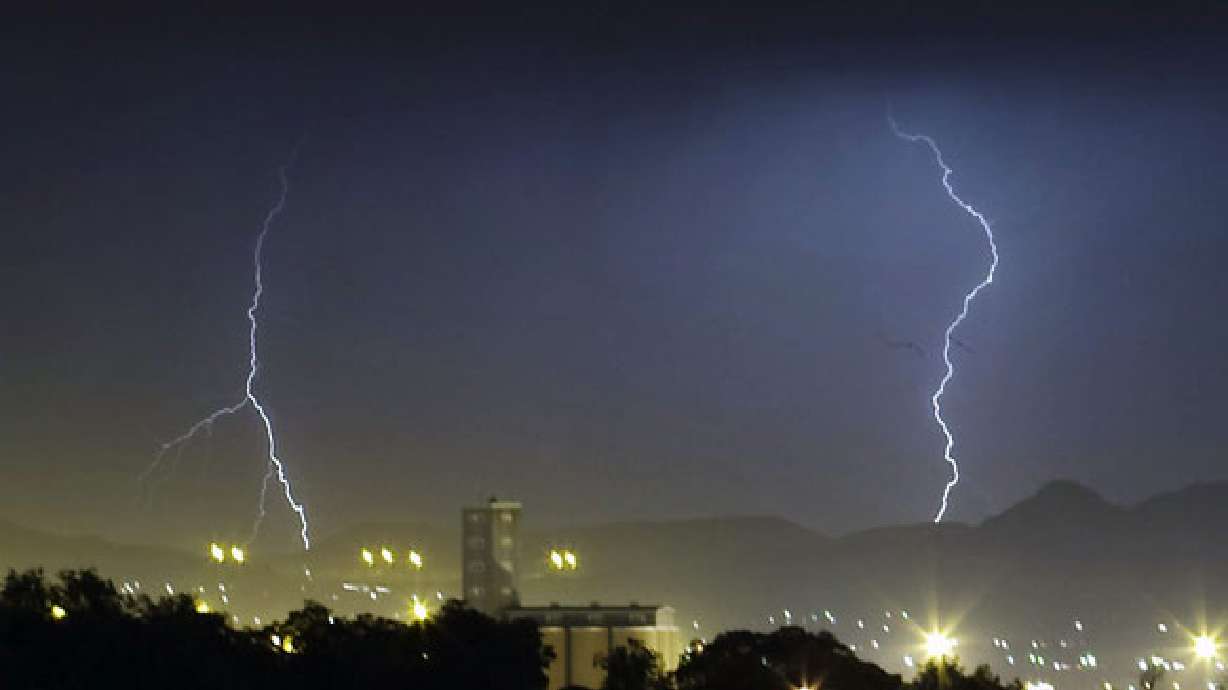Estimated read time: 2-3 minutes
This archived news story is available only for your personal, non-commercial use. Information in the story may be outdated or superseded by additional information. Reading or replaying the story in its archived form does not constitute a republication of the story.
Ed Yeates ReportingToday officially is the beginning of summer and lots of fun outdoors. But with the fun, a warning for Utah's number one storm-related killer.
When skies turn dark and lightning zaps here and there, take cover-- but not under a tree.
We all know about this hazard. But what about ones we're not familiar with, especially some of the newer precautions.
"We saw lightning everywhere. But we were just having fun. We didn't think it would happen."
"Somehow it reminded me of a fog coming over the peaks of San Francisco, about as innocuous looking. And then the next thing we knew, we were down."
"Finally the paramedics said, 'Give up on this guy. You can see he's dead.'"
We could go on with near death stories from those who've been hit with lightning. But meteorologist Kevin Barjenbruck would prefer to see these experiences end.
NOAA is pushing a campaign this week to get people out of harm's way when the bolts start zapping.
Kevin Barjenbruch/ Warning Coordination Meteorologist: "In the case of Utah, we've had 60 lightning fatalities since 1950. But we've also had 144 injuries. So for every lightning fatality, there are also at least three or four people struck by lightning."

Those survivors may walk away, but many will have lifetime injuries.
In a lightning storm, don't play. Take refuge. Postpone activities promptly. Don't wait for it to rain.
"Lightning can actually strike ten miles away from where rainfall is occuring. So that's one of the things that catches people off guard."
Get inside a completely enclosed building or a hard top car. If you can't?
"Make sure you're not the tallest object in the area, or close to tall objects, trees. And in a worst case scenario, crouch down. Make yourself a poor lightning target."
Even when you're inside a shelter, like your house, avoid corded appliances and plumbing. Plumbing?
"Lightning charges can actually travel into the house through the plumbing."
That means during a big storm, according to NOAA, don't take a shower.









